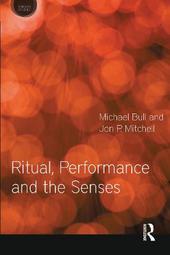
|
Ritual, Performance and the Senses
Paperback / softback
Main Details
Description
Ritual has long been a central concept in anthropological theories of religious transmission. Ritual, Performance and the Senses offers a new understanding of how ritual enables religious representations - ideas, beliefs, values - to be shared among participants.Focusing on the body and the experiential nature of ritual, the book brings together insights from three distinct areas of study: cognitive/neuroanthropology, performance studies and the anthropology of the senses. Eight chapters by scholars from each of these sub-disciplines investigate different aspects of embodied religious practice, ranging from philosophical discussions of belief to explorations of the biological processes taking place in the brain itself. Case studies range from miracles and visionary activity in Catholic Malta to meditative practices in theatrical performance and include three pilgrimage sites: the Church of the Holy Sepulchre in Jerusalem, the festival of Ramlila in Ramnagar, India and the mountain shrine of the Lord of the Shiny Snow in Andean Peru. Understanding ritual allows us to understand processes at the very centre of human social life and humanity itself, making this an invaluable text for students and scholars in anthropology, cognitive science, performance studies and religious studies.
Author Biography
Michael Bull is Professor of Sound Studies at the University of Sussex, UK.Jon P. Mitchell is Reader in Social Anthropology at the University of Sussex, UK.
ReviewsThe authors take us on an exhilarating and illuminating journey, combining insights from neuroscience, embodiment theory, performance studies, place and space concepts, and the idea of the extended sensorium, gathering everything into a holistic account of bodily engagement with ritual and experience. The result is a stunning set of contributions to the anthropological theory of ritual. The study of religious ritual continues its wide turn toward the body in Bull and Mitchell's edited volume, which reminds us that knowledge is know-how, rooted firmly within the body, and only secondarily in the brain. The authors are not offering some reheated neo-empiricism, but rather point toward another kind of knowledge altogether, another way of performing, another way of being religious.
|